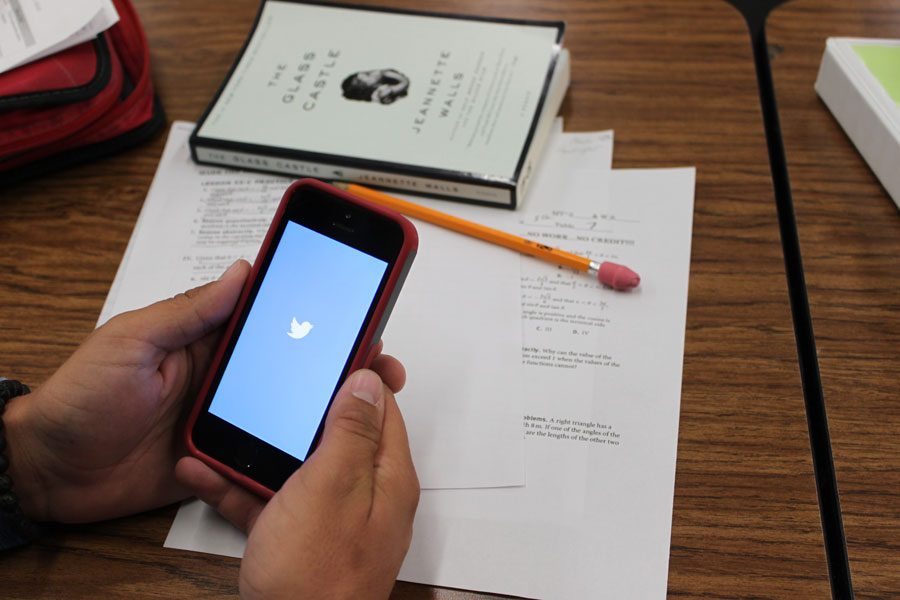Cell phones frustrate teachers, negatively impact education
Nov 1, 2016
Every teacher has their own policy on devices. Some have a “phone jail”, some allow them in class, and some prohibit phones completely.
Teachers now have this added responsibility of controlling cell phones.
“My class policy on cell phones is that it is up to each student to know their capability and knowing whether or not they can handle having their cell phones out. There are 30 different students with 30 different responsibility levels,” said History teacher Mr. Stafford Newsome. “They are young adults and should be treated as so.”
Newsome allows students to be on their phones in class, but when grades come out all the responsibility falls on them. A teacher’s job is to educate; learning is up to the students.
Many teachers see a direct correlation between the students grades and how much they are on their phones. However, Newsome thinks having a policy makes the issue worse.
“When I allow students to have their phones they don’t fight it as much and are more responsible with it,” said Newsome.
When students are allowed to have their devices out, most are more respectful and use their phones intelligently, but the students without a will to learn are often found on their devices.
Both, Newsome and English teacher Mrs. Tiffany Adema said that they would not have been as successful in high school if cell phones were present like they are now.
“I think this generation uses their phone like a social crutch. They’ve lost skills such as face to face conversation, eye contact, and being able to communicate clearly with your words and not just through text,” said Adema.“I love how kids can use it as a resource, when they learn how to use it maturely and know the purpose for having it at school. It can be a great tool.”
The standing issue for teachers is that they cannot monitor every phone and see what every student is doing.
“Phones are one of those things where you give students an inch and they take a mile,” said Math teacher Mr. Brett Dittmer. “It really goes back to a respect factor. If a teacher is taking their time to talk to you, even in a group setting, out of respect you should give them your undivided attention.”
If students want to be treated as young adults then the student body as a whole needs to take responsibility for their education the school is providing. With a careful balance of phones, focus, and determination any student can have a great, long lasting education that propels them into their future.
Cell phones have a positive impact on schooling if students are taking the responsibility into their own hands.




